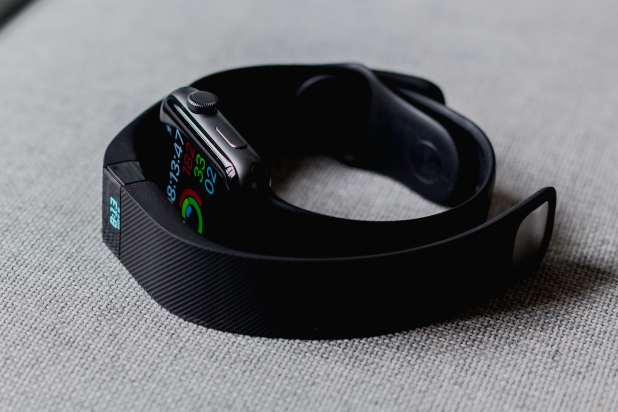Snapshots of Dementia: It’s Broken (or not)

Tom hobbled into the kitchen the other day, a man on a mission.
“What’s wrong, baby?”
“My Fitbit is broken,” came his gloomy response.
“What seems to be the problem?”
“It won’t show me the time anymore. It’s broken.”
Tom can’t walk for exercise anymore, but he retains his obsession with his Fitbit. He can’t charge it on his own anymore either, but he wants to make sure it’s always ready for use. And when he accidentally switched it over to timer rather than clock mode, he felt sure it was broken.
You and I wouldn’t come to that conclusion. But you and I, for the most part, are not people living with dementia.
“Here, let me see it,” I said, reaching for the device.
Of course, it only took a few taps and swipes for me to return it to clock mode.
“Here you go! I got it working again,” I said as I gave it back. It makes more sense to go with his reality than try to explain the details.
He took the Fitbit, turned, and walked back to his recliner, his dismay forgotten.
Given Tom’s obsession, you’d think he would have been happy and grateful. But although he still expresses happiness and gratitude at times, he does not typically connect those to events such as this one. And in the short time before I returned the device to him, he may have forgotten about his “it’s broken” conclusion.
In the days when I didn’t realize Tom was LWD, happenings and conversations like this confused and upset me. Why was he acting this way?
The “personality changes” mentioned in lists of dementia signs and symptoms often look different with different people. I’ve heard and read many stories from others whose loved ones are LWD. Since I didn’t realize that some types of dementia initially (and most types eventually) have a behavioral connection, I thought some of Tom’s odd behaviors were just that—odd behaviors, mistakes, or misunderstandings.
Looking back (yes, we know what they say about hindsight) I realize that some or all were symptoms of the evil lurking inside his brain. Here are a few more of the changes he exhibited some time before he had a dementia diagnosis:
— PESSIMISM: Always an upbeat person, he became a negative one. In the same way the Fitbit was “broken,” the banking website was “messed up,” and his discipline of our “terrible” dog became unduly harsh. For someone whose world is becoming more and more challenging, it’s easy, even natural, to be negative.
— APATHY: Tom had less and less interest in family birthdays, anniversaries, even special events such as a couple’s baby shower for our daughter and son-in-love. This was not because he didn’t care, but because he couldn’t. Before we knew he was LWD, this behavior hurt. And when we think about who he was compared to who he is now, at times, it still does.
— INAPPROPRIATE ATTENTION TO WOMEN: Tom would ignore me but flirt outright with women in service roles, such as at the grocery checkout. I never heard him say anything sexual, but the fact that he largely ignored me and paid attention to other women bothered me, and I addressed it in our marriage counseling to no avail. He still pays more attention to women than men. But now that I know he is LWD, I am grateful whenever he interacts with others.
— OBSESSIVE-COMPULSIVE BEHAVIORS: I mentioned the Fitbit, but that’s only become important in the past few years. Long before this, he was obsessed with bananas, hoarding food, especially sweets (he took candy from the church receptionist’s jar and hid it in his desk; he also hid candy at home), along with shifting and otherwise manipulating our hybrid car to get the best mileage possible.
I’ll save the rest of my list of unusual behaviors for next week’s blog. In the meantime, if you suspect a friend or family member is LWD, watch their behavior. Memory loss is a frequent component of dementia, but it is far from the only one. Note behaviors that seem “off,” and consider keeping a list so you can mention to a doctor or other medical professional.
Again, I wish I had paid more attention sooner. If I had, would have had much more to tell the neurologists and neuropsychologist back when they were so sure he was “fine.”
If you have a friend or family member who is LWD, what, if any, odd behaviors have you witnessed? Did you associate these with dementia, and if so, how did you make the connection? Feel free to share your thoughts in the comment section below or on social media. Our story matters—and so does yours.




